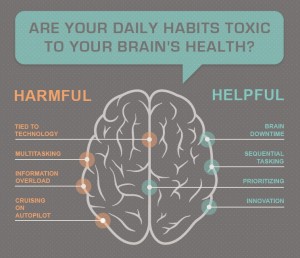It is no secret that our lives are busy, stressful, & jam-packed full. We are juggling work, school, parenting, relationships, completing “to-do lists,” driving from T-ball to swim lessons, or even binge watching the latest Netflix series. Our smart phones, tablets, & computers allow us to function in our world while also feeling connected to what’s happening in one another’s lives, whether through social media, texting, or face time. But, how productive are we really being? What about the quality of our work? Do we need to be multi-tasking at every moment we are awake to be productive? And how does this lifestyle impact our wellness?
I am definitely part of this norm, from working as a therapist, to parenting my 2 year old. However, in the past year I began to notice how difficult it was for me to accomplish all I needed during a week, while also fulfilling my roles as a mother, partner, & friend without becoming overwhelmed & overly stressed. I had fallen into the belief that if I kept my smart phone in my back pocket I could “multi-task” at any point in the day, but was I really being productive & at what cost?
The Center for Brain Health at the University of Texas in Dallas has shown how many of our habits are actually harmful, not helpful, to our brain’s health. Some of the damaging tendencies we may fall into include being tied to technology, multitasking, information overload, & cruising on autopilot. If these are harmful, what is productive & healthy? According to the Center for Brain Health and their brain health tips, helpful habits include having brain downtime, sequential tasking, prioritizing & innovation.
I mentioned feeling unproductive despite my efforts to be constantly “doing.” Multitasking can actually contribute to being unproductive. It causes brain fatigue & lengthens the time it takes to complete a task. Reducing multitasking gives your full attention to the task at hand & allows for better use of your time. Rather than doing many things at once, try starting with one task, working on it for 15-minute intervals. What we think is multi-tasking is more often doing portions of many tasks while being distracted in between.
I also disclosed feeling overwhelmed at times; I imagine I’m not alone in that. We are exposed to & have access to more information than ever before, which is extremely valuable, but it may be more effective to select a limited number of things to gather information on. Even when preparing for this blog post I found myself engulfed in a completely unrelated article, which triggered an entirely separate train of thoughts & ideas. The Center for Brain Health attributes this to information overload & suggests narrowing our focus by choosing the 2 most important “to-do’s” each day & allocating special time to attend to those.
Another culprit is cruising on autopilot. Think about your daily conversations with your partner, children, or coworkers. When someone asks, “how are you doing?” do you often respond with the same answer over & over? Do you find yourself at work but forgetful of the details of the drive there? When our thoughts, conversations, & actions become routine, our brain gets bored & goes backward. Consider deepening & expanding your brainpower. The Center for Brain Health suggests thinking like a reporter in order to bring thoughts together in new ways. What questions would a reporter ask about a recently completed book or movie? Taking the time to think more critically about a given piece of information can help us synthesize information in a more dynamic & useful way.
I know that I am implementing more awareness towards my brain health and am trying to view it similarly to practicing healthy habits for my body with food, exercise, & rest. I encourage you to try making some of these small shifts by applying some of these brain health tips in your daily life to aid in overall wellness.
Reference & Image: Center for BrainHealth












